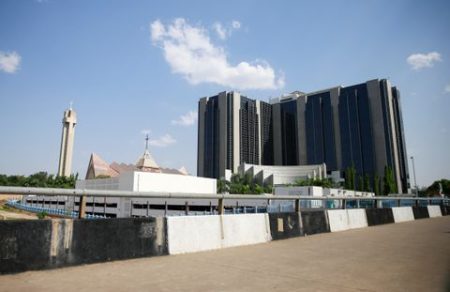
Ike Amos
28 November 2018, Sweetcrude, Abuja — Nigeria earned N1.394 trillion from the petroleum industry in the third quarter of 2018, dropping slightly by 0.29 percent from N1.398 trillion recorded in the second quarter of 2018, according to data obtained from the Central Bank of Nigeria, CBN.
The CBN, in its Third Quarter 2018 Economic Report, stated that revenue from the petroleum industry accounted for 55.2 percent of total revenue in the third quarter of 2018.
According to the CBN, total gross federally-collected revenue, stood at N2.525 trillion, appreciating by 8.93 percent from N2.318 trillion recorded in the second quarter.
The financial industry regulator blamed the decline in oil revenue to sabotage of oil facilities which led to leakages, shut-ins, and shut-downs.
The CBN said, “Gross oil receipt, at N1.394 trillion or 55.2 percent of the total revenue, was below the proportionate quarterly budget estimate by 27.4 percent. It also fell marginally below the receipts in the second quarter of 2018 by 0.3 percent.
“Despite the increase in crude oil price, oil revenue declined relative to the proportionate budget owing to shortfalls in crude oil production and exports, arising from leakages and shut-ins/shut-downs at some NNPC terminals.”
Giving a breakdown of earnings from the petroleum industry, the report disclosed that revenue from crude oil and gas sales dipped by 4.42 percent to N104.49 billion in the third quarter of 2018, compared to N109.32 billion recorded in the second quarter of 2018.
The report further stated that the country earned N914.56 billion from Petroleum Profit Tax (PPT) and Royalties and N375.14 billion from other sources in the quarter under review, compared to N841.03 billion and N447.71 billion in the second quarter respectively.
The CBN report also disclosed that Nigeria’s crude oil production, including condensates and natural gas liquids, averaged 1.84 million barrels per day (MBD) or 169.28 million barrels (mb) during the review quarter, representing a marginal decline of 0.01 mbd or 0.5 per cent, compared with 1.85 mbd or 168.35 million barrels recorded at the end of the second quarter of 2018.
According to the CBN, the estimated decline in production was attributed, largely, to the ongoing outages on the Trans-Ramos pipeline and the force majeure on exports of Bonny light.
It noted that crude oil export averaged 1.39 mbd or 128.8 mb, representing a decline of 0.7 percent below 1.40 mbd or 127.4 mb in the preceding quarter.
In addition, the report said, “Electricity generation improved during the review quarter. At 3,358.0 megawatts per hour (MW/h), average estimated electricity generation rose by 3.32 percent, compared with the level at the end of the second quarter of 2018. The increase was attributed to the increased gas supply to thermal stations and higher water level at the hydro stations.
“At 3,098.0 MW/h, average estimated electricity consumption rose by 1.74 percent, above the level at end of the preceding quarter. The increase in electricity consumption was attributed to increased electricity generation.



